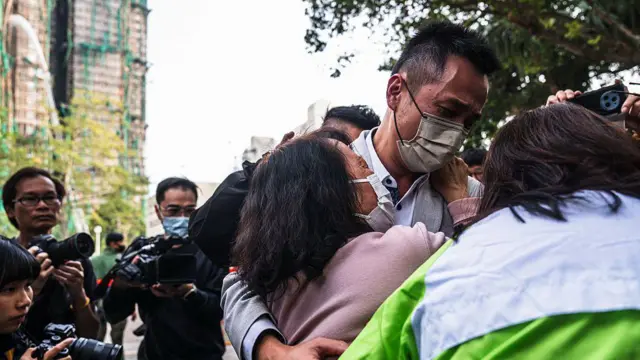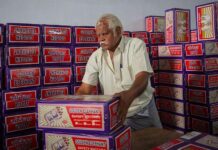“Hang in there.”
Those were the last words Mr Chung ever said to his wife. They now encapsulate the agonising limbo faced by hundreds after a devastating fire tore through a public housing complex in Hong Kong’s Tai Po district, becoming the city’s deadliest blaze in six decades.
The fire, which began on Wednesday, engulfed seven high-rise towers at the Wang Fuk Court estate, fueled by flammable renovation materials and scaffolding. It has claimed at least 94 lives, with nearly 300 people still unaccounted for days later.
A Desperate Wait
For families like Mr Chung’s, the wait has been torturous. After his wife called in a panic, trapped with their cat in their 23rd-floor flat, he rushed home to find the building in flames. They stayed on the phone as smoke filled her apartment until she said she was about to faint.
“She probably did faint,” Mr Chung said, his eyes red from tears. “I dare not call her again.” He now braces for the worst, believing she “passed away with our cat, who she loves.”
The tragedy has exposed systemic failures. Multiple survivors told the BBC no fire alarm sounded; warnings came only through frantic phone calls from relatives. This was particularly deadly in an estate where 40% of residents are elderly.
A Community’s Grief and Anger
On social media, desperate posts about missing elderly parents, children, and pets circulate endlessly. One mother wrote, “I am afraid there is no hope,” after nearly 30 hours without news of her baby girl.
This grief has quickly turned to anger. The spotlight is now on a controversial HK$330 million renovation project that residents had opposed due to cost. Authorities have arrested three construction firm executives for “gross negligence,” citing substandard, highly flammable materials used on the scaffolding.
Long-time residents like Grandma Chan recalled fearing the renovations, occasionally noticing a burning smell. “Will anything happen if I stay home?” she had asked her daughter.
An Uncertain Future
For those who escaped, the future is daunting. Kyle Ho’s family used a mortgage to buy their subsidised flat three years ago. “The worst-case scenario is that we have lost our flat,” he said. “But the most important thing is that all of us are safe. We are luckier than many other families.”
His sentiment underscores the stark divide between those grieving their homes and those, like Mr Chung, grieving their loved ones.
As authorities insist they “haven’t given up” on finding survivors, Mr Chung remains outside the scorched tower, his hope a painful, fading echo of his last promise.
“I want to rescue her,” he said, “whether she’s alive or gone.”
By James Kisoo



















